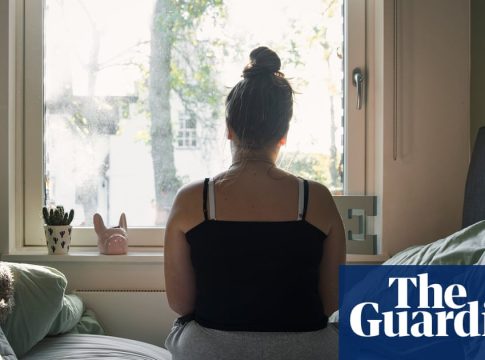Rising Mental Health Challenges Among Young People: Insights and Support
Recent findings shed light on a concerning trend in mental health, particularly among young individuals in England. A comprehensive NHS survey reveals that nearly one in four young people aged 16 to 24 are grappling with common mental health conditions such as anxiety and depression. This significant increase underscores the need for understanding and support within our communities.
The Growing Epidemic: A Closer Look
Over the past decade, the prevalence of mental health conditions in young adults has risen from 18.9% in 2014 to a striking 25.8% in 2024. Alarmingly, young women report these issues at nearly three times the rate of their male counterparts, illuminating a pressing need for targeted support.
The survey highlighted various mental health disorders, including panic disorder, phobias, and obsessive-compulsive disorder (OCD). Among young women, the rate of these conditions climbed to 36%, compared to 13.5% for young men. This disparity highlights broader societal anxieties that are increasingly impacting the mental well-being of our youth.
Factors at Play
Sally McManus, a lead researcher for the survey, notes that the pressures facing young people today are immense. From uncertain job prospects and housing challenges to the lingering effects of the pandemic and concerns about climate change, it’s easy to understand why mental health may be suffering. “The pandemic has significantly impacted young people’s mental well-being,” McManus explains, emphasizing the cumulative stressors they face.
Rising Rates of Self-Harm and Suicidal Thoughts
The survey also identifies alarming trends in suicidal thoughts and self-harm. More than 22.6% of adults aged 16 to 64 report having mental health conditions, with 31.5% of 16- to 24-year-olds expressing suicidal thoughts at some point in their lives. Self-harm rates have quadrupled since 2000, highlighting a critical need for effective intervention strategies.
Notably, young women again exhibit the highest rates of self-harm, with figures as high as 31.7% in the 16-24 age bracket. This calls for a compassionate response that not only acknowledges these statistics but seeks to provide the necessary support.
Access to Support: A Double-Edged Sword
The positive aspect of this survey is the increasing recognition and treatment of mental health issues. Nearly half of those diagnosed with common mental health conditions are seeking therapy or medication. Yet, troublingly, more than half still do not receive appropriate support. This gap exposes the fragility of our mental health services, which many experts deem a system in distress.
Mental health advocates stress the urgency for improved resources. Marjorie Wallace of the mental health charity Sane emphasizes the pressing need for a system capable of meeting these rising demands.
Moving Forward: Strategies for Wellness
Recognizing mental health challenges is the first step toward personal and communal healing. Here are a few empowering strategies you can adopt or share with young individuals in your life:
- Open Conversations: Create a safe space for discussions about feelings and mental health. Sometimes, simply talking can make a tremendous difference.
- Seek Professional Guidance: Encourage seeking help from mental health professionals to navigate these challenges effectively.
- Practice Self-Care: Promote activities that nourish the mind and body, such as mindfulness, exercise, and engaging hobbies.
- Stay Informed: Awareness is key; understanding mental health can help reduce stigma and encourage others to seek support.
A Call to Action
As we navigate these uncharted waters together, it is essential to foster resilience and compassion. Dr. Clare Murdoch of NHS England highlights the interconnections between mental health, personal life, and overall well-being. There is a strong need to advocate for a more robust mental health framework, addressing the complexities that young individuals face today.
This growing mental health crisis is not insurmountable, and with collective effort and understanding, we can create a more supportive environment for the well-being of all individuals. Together, we can empower ourselves and those around us to embrace mental health as a fundamental aspect of life.

Covers wellness, nutrition, mental health, and daily life tips.
Bio: Talia brings a background in health journalism and holistic living to help readers live better, one tip at a time.

